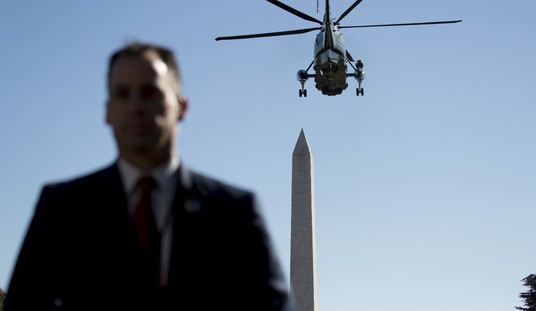So, by now, Trump is pretty much dominating the headlines, he’s leading in a few polls, and maybe we should treat him as the frontrunner of the 2016 GOP field. After all, he’s here to stay (for the moment), but his actions after the first GOP debate have earned him the ire of many. The billionaire businessman was disinvited from the conservative RedState Gathering in Atlanta. Since the debate, Trump has dropped almost ten points, according to a new Rasmussen poll. Additionally, there are reports that his campaign has entered a state of “civil war,” a claim that was exacerbated when top adviser Roger Stone quit shortly after the debate. The Trump campaign alleges that the Donald fired Stone, which the latter disputes (via Politico):
Regardless of who resigned or was fired first, the campaign shakeup was the first sign that Trump’s election effort was seriously damaged from within after his Thursday night debate performance and his subsequent comments in which he attacked one of the Fox debate moderators, Megyn Kelly.[…]
The next morning, Stone had to fight Trump’s handlers to meet with him for 15 minutes, prompting the following exchange that both of Stone’s friends, independently and separately, tell POLITICO what happened:
Stone: “Donald, stop with the Megyn Kelly s**t. It’s f**king crazy. It’s killing us.”
Trump: “What do you mean? I won the debate. People loved it.”
Stone: “You didn’t win the debate.”
Trump: “Yes I did. Look at the polling. Look at Drudge.”
Stone: “The Drudge Report poll isn’t a scientific poll. You won’t give me the money to pay for a scientific poll. And you’re off-message.”
Trump: “There are other polls.”
Stone: “Those are bulls**t polls, Donald. They’re not scientific polls. We need to run a professional campaign and talk about what people really care about.”
Trump: “We’re winning.”
[…]
“He is losing his grip on reality,” Stone told them. “He has these yes-men around him. And now he’s living in a parallel world.”
The article also noted that the Trump camp vociferously denied an exchange like the one above ever took place.
So, the campaign appears to have serious internal problems, which could happen on national campaigns; people bucking for more influence, lost of political machinery and money flowing–it happens. Yet, if this exchange did occur, the latter part is telling. Trump doesn’t appear to want to do serious polls, even though he has the money to do so, because he’s afraid that he might find out what the ending of his 2016 candidacy will be: abject defeat. It’s the spoiler alert that no one wants hear–and if they hear it; it sends them into a frenzy.
Recommended
So, while Trump is leading big in Iowa, let’s not forget that a lot of other polls show him losing support (via FiveThirtyEight):

The polling is a bit split on Trump, but there is enough evidence to say — at the very least — that he didn’t gain any ground. On average, Trump lost about 2 percentage points off his standing, and that includes a Morning Consult poll that found him gaining 7 percentage points — a result no other poll came close to. Averaging polls that were conducted primarily by phone (i.e., Franklin Pierce, Public Policy Polling, Rasmussen Reports and Suffolk) shows Trump down 5 percentage points after the debate. Perhaps more dangerous for Trump, his net favorability rating in YouGov’s national poll dropped 14 percentage points, and 56 percent of Iowa Republicans said they feel less comfortable with him being president, according to Suffolk.
If this is true, it signals the beginning of a collapse. Moreover, even if Trump is leading now, we seem to be forgetting that the Iowa Caucuses are a long ways away; anything could happen. With how Trump has acted thus far, we should expect more un-presidential behavior. Second, there are various primary factors at play that really don't mesh well with Donald’s electoral game:
…[T]he problem isn’t just that the national polls at this stage in the race lack empirical power to predict the nomination; it’s also that they describe a fiction. I don’t mean to suggest that Donald Trump’s support in the polls is “fake.” I have no doubt that some people really love him or that he’d be the favorite if you held a national, winner-take-all Republican primary tomorrow. However, the “election” these polls describe is hypothetical in at least five ways:
- They contemplate a vote today, but we’re currently 174 days from the Iowa caucuses.
- They contemplate a national primary, but states vote one at a time or in small groups.
- They contemplate a race with 17 candidates, but several candidates will drop out before Iowa and several more will drop out before the other states vote.
- They contemplate1 a winner-take-all vote, but most states are not winner-take-all.
- They contemplate a vote among all Republican-leaning registered voters or adults, but in fact only a small fraction of them will turn out for primaries and caucuses.
This is why it’s exasperating that the mainstream media has become obsessed with how Trump is performing in these polls.
Over at Real Clear Politics, Sean Trende, an elections analyst, noted that the GOP has nominated Bob Dole, two Bushes, and Mitt Romney as evidence that the party won’t be all gung-ho over someone as brash as the Donald. Yet, the high distrust and disapproval of the GOP establishment could add to Trump’s shelf life. He also noted that there is little evidence that Trump is hurting the GOP brand, as his rivals aren’t living up to poach his supporters–and they’re generally disgusted by his remarks. Yet, Trende also said that we should not treat him as the frontrunner, though some disagree:
In August of 2003, the leader in the Democratic primary was Joe Lieberman, with 18 percent. He was followed by Dick Gephardt and Howard Dean, at 15 percent each, and finally John Kerry at 12 percent. By late fall, Dean led in the polls. But his polling lead collapsed in the homestretch; he failed to win any races outside of his home state and the non-binding D.C. primary. Gephardt and Lieberman likewise went nowhere; Sen. John Edwards, who was at 5 percent over the summer, emerged as the leading alternative to Kerry.In the summer of 2007, Sen. Hillary Clinton had opened up a double-digit lead over her competition, which grew to almost 25 points in September. On the Republican side, McCain was approaching single digits in the polls, while former New York Mayor Rudy Giuliani had opened up a nine-point lead over former Sen. Fred Thompson. Romney had a healthy lead in Iowa, while eventual leader Mike Huckabee was mired at 3.5 percent.
Finally, in the summer of 2011, Texas Gov. Rick Perry was beginning a Trump-like ascent in the polls, rising from a mere 5 percent in June to a peak of 32 percent in mid-September. Many analysts considered him the likely nominee. Oops. At the same time Rep. Michele
Bachmann was receiving a little more than 25 percent in Iowa polling.
Of course, Romney became the eventual nominee, but not before enduring boomlets from Herman Cain, Newt Gingrich (twice), and Rick Santorum. As late as December 2011, Gingrich even held a 13-point lead over Romney.
Even in Iowa, the vast majority of voters have yet to make up their minds, as Dan noted earlier today. Yet, what about Trump’s legion of supporters? I’ve generally thought that he was tapping into an angry subset of the electorate, furious over the lack of the rule of law regarding health care and immigration (i.e. Obama’s executive actions and delay of parts of the Affordable Care Act). To some extent, that may still be a factor, especially when you mention illegal immigration, though Yahoo!’s Matt Bai wrote that the electorate generally isn’t angry–and those who are seem to be a subset of a subset:
Yes, there’s a sizable segment of enraged voters in the GOP — and on the left, for that matter. The angry vote is a fixture of the modern political landscape and has been, more or less, since at least the 1970s.But Trumpmania may be telling us a lot less about the dominant mood in the electorate at large than we think. As one of the more astute liberal bloggers, Mother Jones’ Kevin Drum, points out, Trump has been drawing the support of less than a quarter of Republican primary voters, who in turn make up less than a quarter of the voting public.
And not only are Trump’s mad-as-hell voters a fraction of a fraction of the electorate, but they represent even a subset of that small group who are engaged in the campaign at this point and angry enough to actually take a pollster’s call.
In other words, Trump’s summer surge tells you about as much about prevailing political attitudes in America as the line outside the Yogiberry tells you about the state of the American dairy industry.
Here’s something interesting to consider: According to the Pew Research Center, which to my mind does the best polling on public attitudes across a range of topics, anger in the American electorate actually peaked in 2013 (at about 30 percent), after Republicans in Washington decided to turn the budget process into a series of hostage crises. Since then, the number of voters who identify themselves as angry has actually dipped precipitously, to about 19 percent last year.
So, there you have it: Trump’s base of support is small, it’s dubious that he’ll be able to expand it, there’s internal strife with his campaign staff, and the polls showing him in the lead are conducted through a prism that there’s a national primary, not one based on the results from separate states.
If Trump decided to dump his own cash, which he’s so far been hesitant to do, to build a serious ground game in the early voting states, then we shall revisit this question about his candidacy soon. Yet, even with his belligerent and boisterous character, the Donald knows how to make money–forking over hundreds of millions of dollars of his own wealth to make this 2016 dream happen seems like a very bad business deal.
He recently said he supported funding the “good parts” of Planned Parenthood, which is pretty much the position that the organization has staked out as well. He supports a wealth tax, calling it a conservative idea. And he still seems sympathetic to single-payer health care. It’s kind of hard to fundraise with positions like these, unless you’re a Democrat. The Donald is going to stick around, but there’s an expiration date.
Friendly Reminders:
- Mexico won't pay for Trump's coveted wall.
- It probably isn't smart strategy to pick a fight with a news network that's overwhelmingly trusted by the party whose nomination you're seeking.
- Trump's third party run threats are probably empty.
"Having a two-party race gives us a much better chance of beating Hillary and bringing our country back than having a third-party candidate..." -Donald Trump to the Washington Examiner's Byron York last month.
I'm sure you all have thoughts on this subject. Comment away!
























Join the conversation as a VIP Member